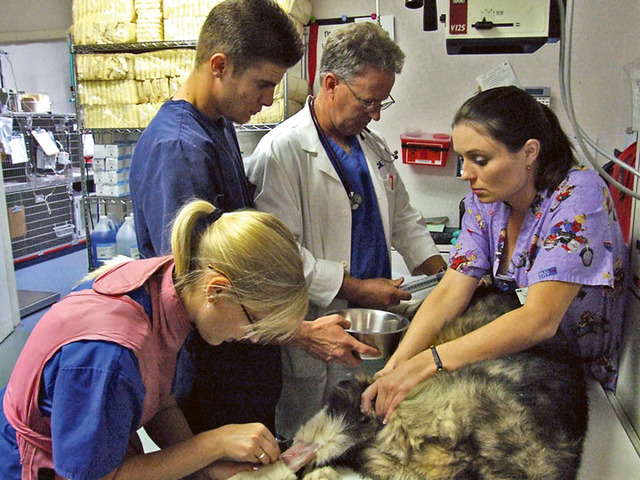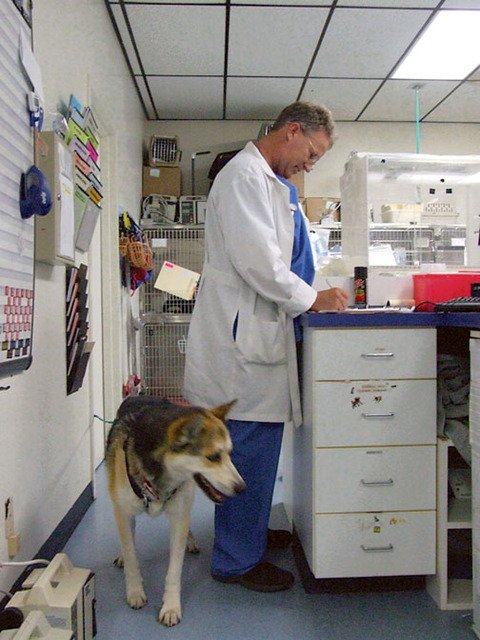Worker Files: Emergency Night Vets
From Last Goodbyes To Tail-Wagging Reunions


Dr. Carlton Huitt and a patient named Sasha, who had pneumonia
Jes Abeita
Latest Article|September 3, 2020|Free
::Making Grown Men Cry Since 1992


Dr. Carlton Huitt and a patient named Sasha, who had pneumonia
Jes Abeita

